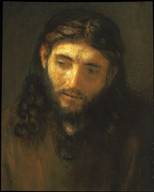But my children's generation has quite a different outlook. Energy production is pushed to the limit and has become much more expensive; the previous government's push for more young people to go to university has made the system fall apart by becoming too expensive; the retirement age is creeping up and guaranteed final salary pensions are a thing of the past; the NHS is itself in need of intensive care and we are all living longer but seem increasingly unhappy.
Has my generation been deceived by a lie that things could only get better? Has that made us greedy for more and expected it as a right? Maybe. Has there ever been a time in history when the next generation faces a future worse than the previous?
I suppose the idea of scientific progress is a relatively modern one - the idea that the appliance of science to everyday life will improve our standard of living year on year. Up until the mid-nineteenth century most people would simply have lived with the prospect of life continuing much the same generation after generation. Perhaps our quest for continual progress has reached a natural limit and can't go any further. It is very difficult, therefore, to leave behind a standard of living, or its expectation, that we have enjoyed and settle for something less.
It all seems rather gloomy, and rather than becoming easier life in general seems more of a struggle. But the human spirit does not give up easily when there is some encouragement around.
I have my grandfather's bible at home. He wrote on the inside cover: '15th March 1916', that is right in the middle of the First World War when he was in the trenches somewhere in France. He also wrote a reference to two verses: Isaiah 41:10 & 13 -
Though life may be getting harder for many, let's not give in to despair when we can encourage one another with these words.





























